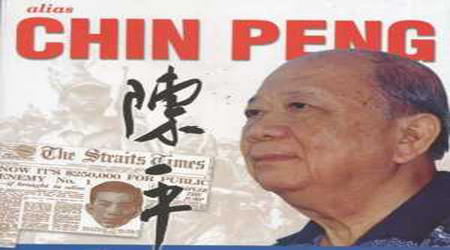In remembrance of Chin Peng by two generals
"Chin Peng was a brave man. He was smart and his mind was sharp. When I talked with him, he was 60 at the time. But most importantly, he kept his promise,"

said General Kitti Rattanachaya, former commander of the Fourth Army Region, recalling his first encounter with the former leader of the now defunct Communist Party of Malaya (CPM).
Meanwhile former prime minister General Chavalit Yongchaiyudh who also played a role in the peace talks between the CPM and Malaysia had high praise for the ex-CPM leader.
"He was a good friend of mine. He was straightforward, easy to talk with. He helped restore peace in the South without which I don’t know when the conflict will be resolved," said General Chavalit.
Chin Peng died of old age at a hospital in Bangkok on September 16. He was 90. Funeral rite was held at Wat That Thong on September 20-22.
The CPM under the leadership of Chin Peng fought alongside British troops against the Japanese imperial army which then occupied Malaya during the Second World War. He was awarded a medal of valour for his war-time exploits but he didn’t travel to London to receive the medal himself.
Later on after the great war, he wanted Malaya to be liberated from British colonial rule and formed an army, originally comprising 12 regiments, to fight against the British army. The war raged on for several years until the CPM was forced to retreat into the jungles in northern Malaya (now Malaysia) and certain parts of southern Thailand.
The CPM’s army which was 12 regiments strong at its peak was reduced to just three regiments – namely the 8th, 10th and 12th – when it made a retreat towards the Thai border.
Elaborating on the history, General Kitti said Thailand then regarded the CPM as a security threat and cooperated with Malaysia to suppress the CPM guerrillas. The war dragged on for several years with both sides sustaining casualties and without any sign that the war would end soon.
General Kitti recalled that secret peace talks started with Thai-based CPM when he was then deputy commander of the Fourth Army Region. But Chin Peng was then in China and a Thai army officer, Akkanit Muensawat, currently with a full general rank, was dispatched to Beijing by General Kitti to see Chin Peng and to convince him back for peace talks brokered by Thailand.
The retired general said he first met with Chin Peng in Phuket. The talks eventually led to the signing of a peace accord between the CPM and the Malaysian government at the Lee Gardens Hotel in Hat Yai on December 2, 1989. Then, General Chavalit Yongchaiyudh signed the agreement as a witness.
Under the peace agreement, the CPM guerrillas must surrender all their arms and they can choose to stay in Thailand or return to Malaysia. Most of them who are Chinese chose to remain in Thailand and, with courtesy of the Thai government, they were settled in Betong and Bannang Sata districts of Yala and Na Thawee district of Songkhla as well as Sukhirin district of Narathiwat.
Making a comparison with the ongoing peace talks between the government and the Barisan Revolusi Nasional separatist group, General Kitti said that the peace talk between CPM and Malaysia which was brokered by Thailand was straightforward and free of political interference although held in secret.
WBut the talks with BRN are controlled by Malaysia with the two parties having hidden agendas. The chance of a success is rather difficult," said General Kitti.
---------------------------------------------------------------------------------------------------------------------------------------
Caption : The emage from the cover of the book "My side of history by Chin peng", modified by Isra News team
